Error message
Warning: Use of undefined constant REQUEST_URI - assumed 'REQUEST_URI' (this will throw an Error in a future version of PHP) in eval() (line 2 of /var/www/html/web/modules/php/php.module(80) : eval()'d code).TRUESSEC.EU
TRUst-Enhancing certified Solutions for SEcurity and protection of Citizens’ rights in digital Europe
Ruben Radwan Tognetti
01 January 2017
31 December 2018
EC funded project
Introduction
TRUESSEC.EU is a Coordination and Support Action investigating the role of certification and labelling schemes in measuring the trustworthiness properties of ICT products. Within TRUESSEC.EU, trustworthiness metrics are investigated and defined from a multidisciplinary legal, ethical, sociological, technical and business perspective. Emphasis is being devoted to human rights and explicit individuals desires, when metrics to measure trust for ICT services are defined and assessed.
With this aim, TRUESSEC.EU works and results are sustained by three pillars:
- A StakeHolders' Online Platform (SHOP), where associated cluster projects and stakeholders from industry, academia, governments and civil society will gather, participate in debates, get informed, and provide their opinions and feedback on the topics of the project.
- A series of Support Analysis and Studies (SUPPA) from multidisciplinary perspectives on issues of trustworthiness certification and assurance, to study the situation of trust-enhancing labels, barriers/incentives to industry adoption and consumer acceptance.
- A set of Recommendations on European Trust-Enhancing Labels (ETEL) dealing with: methodological aspects of certification and assurance, a catalogue of criteria for labels and certifications, and regulatory aspects to foster their adoption, plus a strategic agenda. These recommendations will reflect the conclusions obtained from the support analysis and from the stakeholders engagement.
Who is the project designed for?
The project is designed to inform EU Commission on the required steps to increase trust in ICT products. It does so by connecting and engaging with different stakeholders in various sectors of the digital economy and to leverage their perspective on what are the barriers, the incentives and the needs to develop more trustworthy ICT products. TRUESSEC.EU is not considering only one specific vertical market but working horizontally across a number of them, however particular interest is devoted to digital health sector, where a number of issues related to privacy and trust of ICT products might arise.
How is your project benefitting the end-user?
TRUESSEC.EU project aims to increase consumer trust in ICT products, having at its core consideration for human rights and working on how to digitally re-instantiate them into ICT products. By understanding and identifying recommendations on how to solve existing tensions between end-users and service providers, TRUESSEC.EU aims to inform a number of stakeholders, including EU Commission, policy makers and service providers on how more trustworthiness can be embedded into ICT services, for the benefit of individuals and their human rights.
Please briefly describe the results your project achieved so far
TRUESSEC.EU has so far produced a number of multidisciplinary studies aiming at understanding current individuals desire for trust in ICT services and tensions from businesses to satisfy them. This resulted in a number of multidisciplinary support papers and a set of debates across different stakeholders taking place through the project stakeholders engagement platform SHOP.
6 sociological and ethical core values that should represent the pillar on how trustworthiness metrics should be developed have been identified, including: transparency, privacy, autonomy, anti-bias, respect and protection.
In parallel, TRUESSEC.EU conducted investigation of existing technologies able to translate these core values into technical solutions for trustworthy ICT products, while current gaps have been also identified. On the other end, TRUESSEC partners have investigated businesses tensions to adopt these values and technologies in current ICT products. Legal requirements from ICT product legislation have been investigated to understand where opportunities between compliance and incentives to create more trustworthy ICT products reside.
What are the next steps for your project?
The project will continue to engage with relevant stakeholders through the SHOP platform to validate and refine current findings and to translate them into a set of Recommendations on European Trust-Enhancing Labels (ETEL) dealing with: methodological aspects of certification and assurance, a catalogue of criteria for labels and certifications, and regulatory aspects to foster their adoption, plus a strategic agenda.
Vertical Category:
- ICT
- Transportation
Resources for EU Research
Resources for SMEs
News & Events
Reports
Cyberwatching.eu has received funding from the European Union’s Horizon 2020 research and innovation programme under grant agreement No 740129. The content of this website does not represent the opinion of the European Commission, and the European Commission is not responsible for any use that might be made of such content. Privacy Policy | Disclaimer / Terms and Conditions of Use


